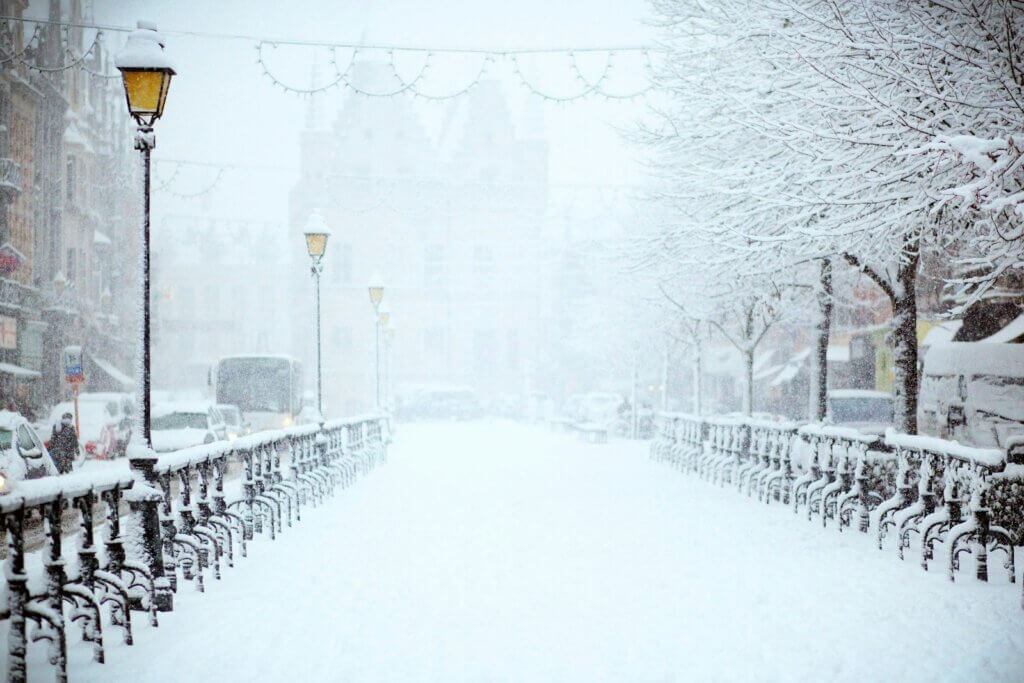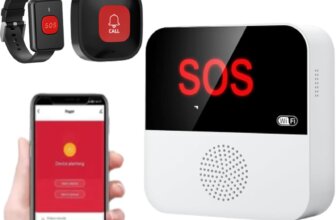Essential Senior Advice for Staying Safe in Cold Weather
When the temperature plummets, advice is welcome and senior winter safety tips are essential.
Winter can pose unique challenges for seniors, and staying safe during this season is crucial. Knowing how to avoid slips and stay warm can greatly reduce the risk of injuries and health issues. Simple measures can make a big difference in protecting seniors from winter dangers.

I know it sounds obvious, but Ice and snow can make walking hazardous. Wearing proper footwear with good traction is essential to prevent falls. Staying indoors during severe weather and keeping homes warm are key steps to ensure safety and comfort.
Another important factor is being aware of signs of cold-related health issues. Seniors should look for symptoms like shivering, confusion, and difficulty speaking. Understanding these signs helps ensure timely action in case of emergency.
Understanding Winter Risks for Older Adults
This video, courtesy of Dr. Jana Robinson, is full of great advice for seniors to keep warm in winter!
Winter presents specific risks to older adults. These can include severe cold leading to physical health issues and the impact of shorter days on mental well-being. It’s essential to recognize these risks to stay safe and healthy during the colder months.
Hypothermia and Frostbite Prevention
This is the biggest problem for a lot of people but especially seniors. Hypothermia occurs when a person loses heat faster than their body can produce it. Older adults are more vulnerable to hypothermia due to factors like slower metabolism and certain health conditions.
Signs of hypothermia include:
- Confusion or memory loss
- Shivering or slurred speech
- Weak pulse
Frostbite can also affect exposed areas, like fingers and toes. To prevent these conditions, older adults should stay warm by dressing in layers. Hats and gloves are important for keeping extremities warm. Staying indoors during extreme cold is crucial.
Combatting Seasonal Affective Disorder and Winter Blues
Have you heard of SAD? Seasonal Affective Disorder (SAD) can cause depression during winter months due to less sunlight. Older adults may feel isolated and experience lower energy levels.
To combat the winter blues, consider:
- Natural light: Open curtains during the day to let in sunlight.
- Physical activity: Gentle exercises can boost mood.
- Social connections: Regular phone calls or video chats with family can help reduce feelings of loneliness.
Essential Indoor Safety Measures
This next video starts slow but is well worth 10 minutes of your time to get some great winter safety tips for seniors.
Keeping a safe and comfortable indoor environment is vital during winter. Two key areas to focus on are maintaining safe indoor temperatures and preventing carbon monoxide poisoning.
Maintaining Safe Indoor Temperatures
It is important to keep indoor temperatures at a safe level. The ideal temperature for seniors is between 68°F and 72°F. This range helps prevent cold-related health issues.
Use a thermometer to monitor indoor temperatures. Adjust the thermostat as necessary.
Ensure that heating vents and radiators are not blocked by furniture or drapes. Regularly check for drafts from windows and doors. Use weather stripping to seal any gaps.
In case of power outages, have backup heating options like electric blankets or space heaters. Make sure these devices are used safely, keeping flammable materials away from heaters.
Avoiding Carbon Monoxide Poisoning
Carbon monoxide (CO) is a colorless and odorless gas that can be very dangerous. To prevent carbon monoxide poisoning, install CO detectors in key areas, especially near sleeping spaces.
Check batteries regularly, and change them at least once a year.
It is important to use gas appliances properly. Never use a stove or oven for heating. Ensure that furnaces, water heaters, and other appliances are well-ventilated and maintained.
If the CO detector beeps, evacuate the home immediately. Seek fresh air and call emergency services right away. Keeping indoor air safe is essential for health during the winter months.
Health Management during Winter
Very short video, sometimes nice! But there’s some great tips in how to keep safe in winter here.
Winter can bring unique challenges for seniors, especially regarding health. Managing chronic conditions and staying properly nourished and hydrated are crucial to maintaining wellness in colder months.
Managing Chronic Conditions in Cold Weather
Cold weather can worsen conditions like arthritis, diabetes, and Parkinson’s disease. Seniors should monitor their symptoms and consult their doctor for any necessary adjustments to their medications.
It’s important to stay active, even indoors. Gentle exercises, like stretching or light yoga, can help improve mobility and reduce stiffness.
Seniors should dress in layers to stay warm. This helps in maintaining joint health and overall comfort. Keeping the home at a comfortable temperature can also mitigate the impact of the cold.
Regular check-ups can help manage conditions effectively, ensuring that seniors remain healthy throughout winter.
Importance of Hydration and Nutrition
Staying hydrated is often forgotten in winter. Seniors should aim for eight glasses of water a day. Hydration helps maintain energy levels and supports overall health.
Eating balanced meals is essential. Seniors should focus on foods rich in vitamins and minerals, especially vitamin D. This vitamin can be hard to obtain from sunlight during winter.
Incorporating fruits, vegetables, whole grains, and lean proteins can boost the immune system. Maintaining healthy blood sugar levels is also important for those with diabetes.
Planning meals ahead of time can help ensure proper nutrition and hydration, leading to better health during winter months.
Emergency Preparedness for Winter Weather
We recommend watching this video, especially the interview with Kim Salisbury. Some great advice here!
Preparing for winter weather is crucial for seniors to stay safe. Having the right supplies and staying connected can make a big difference during a storm.
Assembling Emergency Supplies
Seniors should have an emergency supply kit ready for winter storms. This kit should include:
- Flashlight with extra batteries
- First aid kit
- Non-perishable food and bottles of water
- Warm blankets and extra clothing
- Medications and a list of important contacts
It’s also wise to include a battery-powered or hand-crank radio. This will allow them to receive updates during a power outage. Regularly check the kit to replace expired items. Being prepared can help seniors stay warm and healthy during severe weather.
Staying Informed and Connected
Staying informed about winter weather is key for seniors. They should:
- Sign up for local weather alerts to receive timely updates.
- Share their emergency plan with family and friends.
- Have a charged phone to stay connected.
It’s important to recognize warning signs of severe weather. This can include heavy snowfall or icy conditions. During a storm, check in with neighbors or family members. Staying connected helps ensure that help is available if needed. These steps help seniors feel secure and supported when winter weather strikes.
Summary of Senior Winter Safety Tips
Thanks for reading this article on senior winter safety tips. Here’s a quick summary of all these tips:
- Prevent Falls and Stay Warm
- Wear sturdy, non-slip footwear to avoid slips on icy or snowy surfaces.
- Stay indoors during severe weather, and keep your home at a safe temperature (68°F–72°F).
- Dress in layers, including hats and gloves, to retain body heat and protect extremities.
- Recognize Cold-Related Health Risks
- Hypothermia: Look for signs like confusion, shivering, slurred speech, or a weak pulse.
- Frostbite: Fingers and toes are most at risk; keep them covered and avoid prolonged exposure to extreme cold.
- Seek immediate medical attention if you suspect hypothermia or frostbite.
- Manage Seasonal Affective Disorder (SAD) and Winter Blues
- Increase exposure to natural light by opening curtains or using light therapy.
- Stay active with gentle indoor exercises to boost mood and energy.
- Stay socially connected through calls, video chats, or visits with family and friends.
- Ensure Indoor Safety
- Maintain a comfortable, draft-free environment. Use weather stripping to seal windows and doors.
- Install carbon monoxide detectors and check batteries regularly.
- Never use ovens or stoves for heating; keep heaters and vents clear of flammable materials.
- Look After Overall Health
- Monitor chronic conditions (e.g., arthritis, diabetes) and adjust medications with your doctor if needed.
- Stay hydrated (aim for about eight glasses of water daily), and prioritize a balanced diet rich in vitamins and minerals.
- Light stretching and seated exercises can help reduce stiffness and maintain mobility.
- Prepare for Emergencies
- Keep an emergency kit stocked with flashlights, batteries, non-perishable food, water, blankets, first aid supplies, and essential medications.
- Sign up for local weather alerts and share your emergency plan with family and friends.
- Have a charged phone available, and check on neighbors or loved ones during winter storms.
By following these senior winter safety tips, ranging from fall prevention and temperature control to mental well-being and emergency preparedness, older adults can stay safer and more comfortable throughout the colder months.
If you want to find out more about being an independent senior, check out this article.






